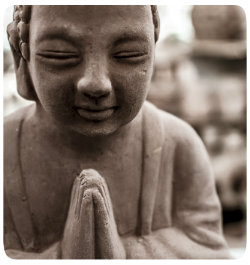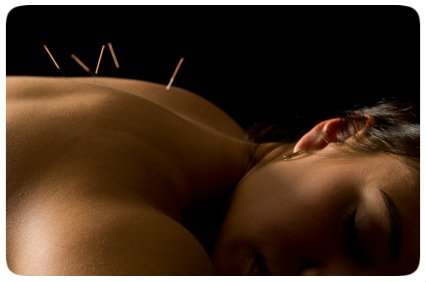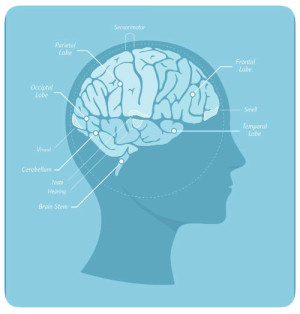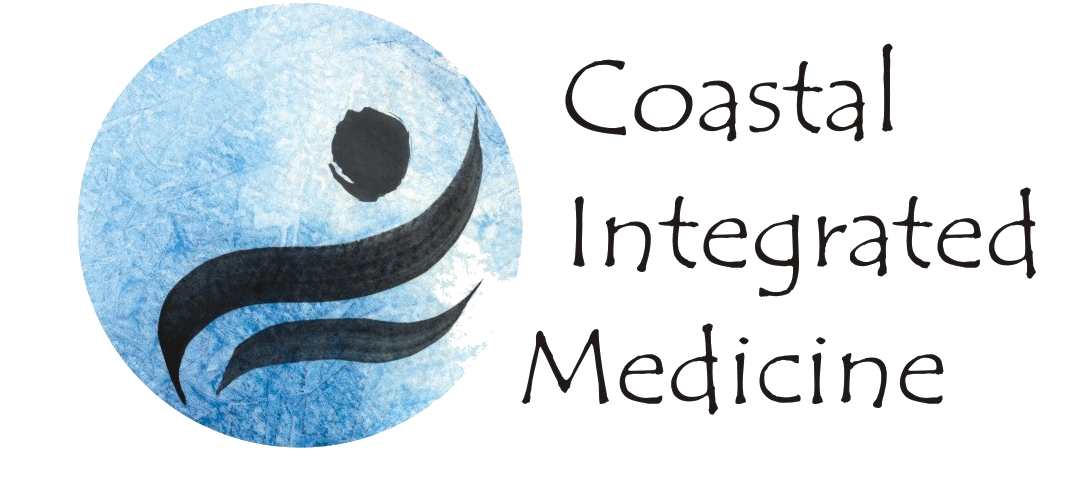Thank you so much to everyone who came to the first class of the winter Qi Gong session. There was a mixture of beginners, some expert practitioners and even a few out-of-towner’s and I think everyone would agree that the room was buzzing with vibrant Qi! While this is a six week class feel free to drop in when you can and don’t worry if you can’t make all of the classes. The main focus of the classes is to practice so just come when you can! I did a 5 minute introduction to the concept of Qi Gong but if you would like to know more I will be uploading a video on YouTube that goes into a little bit more depth in the next little while so stay tuned. If you haven’t already done so please feel free to ‘like’ our Facebook page or subscribe to our newsletter to get updates, info and inspiration. I look forward to seeing you all next week and thank you for helping build a great “Communi-Qi!” -Jeffrey...
 Meditation is an amazing, effective and accessible form of self-care. I’m not sure why everyone isn’t doing it. Seriously. It’s simple, easy-to-do and has an enormous impact on your body. It’s a powerful tool that can really improve your health. If you don’t believe me….try it! Stress is one of the biggest causes of illness, it affects all our systems and essentially makes the body start to ‘shut down’. Chronic stress actually causes part of the brain to ‘shrink’ over time and this affects our short-term memory and thought processing. Have you ever noticed that during moments of high stress you tend to forget names, words and dates? This is normal and happens to most of us. It is just one of the many ways that stress affects the body. The physical effects of stress show up fairly quickly in the form of frequent colds, flu, headache, fatigue, muscle tension, insomnia, and high blood pressure. Unfortunately this is when many people resort to pain-killers and sleeping pills…but they don’t think of meditation. Meditation truly is one of the best health remedies around. It has strong effects on the body physically and mentally. It’s like taking a multi-vitamin for the body and soul. Physically it helps: Lower blood pressure Reduce pain Improve sleep Increase energy Strengthen the immune system Mentally it helps: Improve memory and concentration Reduce anxiety and depression Improve mood Reduce stress Increase creativity There are so many benefits from such a simple practice and it’s accessible to everyone; it doesn’t require fancy athletic gear, going to the gym or taking expensive supplements. It’s so simple yet one...
Meditation is an amazing, effective and accessible form of self-care. I’m not sure why everyone isn’t doing it. Seriously. It’s simple, easy-to-do and has an enormous impact on your body. It’s a powerful tool that can really improve your health. If you don’t believe me….try it! Stress is one of the biggest causes of illness, it affects all our systems and essentially makes the body start to ‘shut down’. Chronic stress actually causes part of the brain to ‘shrink’ over time and this affects our short-term memory and thought processing. Have you ever noticed that during moments of high stress you tend to forget names, words and dates? This is normal and happens to most of us. It is just one of the many ways that stress affects the body. The physical effects of stress show up fairly quickly in the form of frequent colds, flu, headache, fatigue, muscle tension, insomnia, and high blood pressure. Unfortunately this is when many people resort to pain-killers and sleeping pills…but they don’t think of meditation. Meditation truly is one of the best health remedies around. It has strong effects on the body physically and mentally. It’s like taking a multi-vitamin for the body and soul. Physically it helps: Lower blood pressure Reduce pain Improve sleep Increase energy Strengthen the immune system Mentally it helps: Improve memory and concentration Reduce anxiety and depression Improve mood Reduce stress Increase creativity There are so many benefits from such a simple practice and it’s accessible to everyone; it doesn’t require fancy athletic gear, going to the gym or taking expensive supplements. It’s so simple yet one...
 Acupuncture for Chronic Stress and Anxiety In this day and age of busy schedules, multitasking, and work overload, it’s not uncommon for people to experience the occasional anxious moment. For some people though, anxiety is a regular occurrence, something that they feel everyday – all day. When anxiety becomes chronic, the brain reacts by inducing the ‘fight or flight’ response which causes a release of adrenaline and cortisol. Continuous release of stress hormones causes a cascade of symptoms in the body. Common manifestations of chronic anxiety and stress show up as short-term memory loss, weight gain, insomnia, headaches, fatigue, and depression. When a person feels stress, a region of the brain called the hypothalamus sends a message to the adrenal glands to produce a surge of cortisol and adrenaline. Adrenaline can be helpful in acute moments of stress as it boosts physical energy, but is harmful when stress becomes chronic as it can lead to high blood pressure and rapid heart rate. Cortisol affects the immune system, brain function, and digestion and can lead to impairment of memory and learning. Acupuncture can help alleviate the symptoms of long-term stress and anxiety by increasing dopamine and serotonin (the feel good hormones) in the brain. Regular treatment gives the body and mind a ‘rest’ and decreases the physical effects of the stress-response. If you experience chronic stress or anxiety you may want to explore acupuncture as an effective treatment approach. If you have questions about acupuncture for stress or anxiety, feel free to contact...
Acupuncture for Chronic Stress and Anxiety In this day and age of busy schedules, multitasking, and work overload, it’s not uncommon for people to experience the occasional anxious moment. For some people though, anxiety is a regular occurrence, something that they feel everyday – all day. When anxiety becomes chronic, the brain reacts by inducing the ‘fight or flight’ response which causes a release of adrenaline and cortisol. Continuous release of stress hormones causes a cascade of symptoms in the body. Common manifestations of chronic anxiety and stress show up as short-term memory loss, weight gain, insomnia, headaches, fatigue, and depression. When a person feels stress, a region of the brain called the hypothalamus sends a message to the adrenal glands to produce a surge of cortisol and adrenaline. Adrenaline can be helpful in acute moments of stress as it boosts physical energy, but is harmful when stress becomes chronic as it can lead to high blood pressure and rapid heart rate. Cortisol affects the immune system, brain function, and digestion and can lead to impairment of memory and learning. Acupuncture can help alleviate the symptoms of long-term stress and anxiety by increasing dopamine and serotonin (the feel good hormones) in the brain. Regular treatment gives the body and mind a ‘rest’ and decreases the physical effects of the stress-response. If you experience chronic stress or anxiety you may want to explore acupuncture as an effective treatment approach. If you have questions about acupuncture for stress or anxiety, feel free to contact...
 Scalp acupuncture can stimulate damaged areas of brain Scalp acupuncture is a relatively modern application of Traditional Chinese Medicine. It incorporates the concepts of neuroanatomy and brain function. Tiny needles are inserted along the scalp over the affected area of the brain to improve corresponding motor and sensory functions. For example, if a person is experiencing post-stroke weakness in their right foot, then treatment would be applied to the area of the scalp overlying the foot motor-sensory area of the brain. In this case, the left side would be treated as it affects the right side of the body. This technique is most often used in the treatment of post-stroke paralysis, MS, Parkinson’s or serious head injuries. Scalp acupuncture can also be used for improvement of anxiety, depression and developmental disorders. Scalp acupuncture is gentle as the needles are very thin and inserted at a shallow depth. It has a positive affect on brain function while inducing a state of calm and relaxation. It is one of the most relaxing forms of therapeutic acupuncture. Needles are left in for approximately 15-30 minutes with intermittent stimulation while the person is resting. Effects can sometimes be noticed within twenty minutes of treatment. Most patients report feeling calm and relaxed afterwards. Scalp acupuncture is most effective when applied 2-3 times per week. Kristina Chand-Hanson, BHSc,...
Scalp acupuncture can stimulate damaged areas of brain Scalp acupuncture is a relatively modern application of Traditional Chinese Medicine. It incorporates the concepts of neuroanatomy and brain function. Tiny needles are inserted along the scalp over the affected area of the brain to improve corresponding motor and sensory functions. For example, if a person is experiencing post-stroke weakness in their right foot, then treatment would be applied to the area of the scalp overlying the foot motor-sensory area of the brain. In this case, the left side would be treated as it affects the right side of the body. This technique is most often used in the treatment of post-stroke paralysis, MS, Parkinson’s or serious head injuries. Scalp acupuncture can also be used for improvement of anxiety, depression and developmental disorders. Scalp acupuncture is gentle as the needles are very thin and inserted at a shallow depth. It has a positive affect on brain function while inducing a state of calm and relaxation. It is one of the most relaxing forms of therapeutic acupuncture. Needles are left in for approximately 15-30 minutes with intermittent stimulation while the person is resting. Effects can sometimes be noticed within twenty minutes of treatment. Most patients report feeling calm and relaxed afterwards. Scalp acupuncture is most effective when applied 2-3 times per week. Kristina Chand-Hanson, BHSc,...
 The Effects of Fall According to Traditional Chinese Medicine The days are getting shorter, the leaves are getting crisper and Fall is in the air. Fall is a time for looking inward and quiet contemplation. It is a time of reflection and creativity. According to Traditional Chinese Medicine (TCM), each season affects the body and mind in a different way. The change of seasons is a time of dynamic change for the internal organs and it is during these seasonal transitions that we are most susceptible to getting sick. In Chinese Medicine Fall is the season of the ‘Metal’ element. Metal is associated with the emotion of grief or sadness and affects the physical body through the lungs and large intestine. This means that in the Fall we are more susceptible to colds and flu’s with runny nose, cough and fatigue. It is also the time of year where our ‘wei qi’ (immune system) is low and a simple cold can turn into something much more serious for those with weakened immunity. We often see people hit hard with bronchitis and pneumonia around this time of year. Each emotion affects the body in a different way. The emotion of sadness or grief has an inverse relationship with the lungs. Grief or extreme sadness weakens the lungs and can cause physical symptoms such as shortness of breath, asthma or even pneumonia and conversely lung problems can cause a feeling of sadness. It is not uncommon for someone who is grieving the loss of a loved one to develop bronchitis. Constipation is another symptom that often appears in the Fall season....
The Effects of Fall According to Traditional Chinese Medicine The days are getting shorter, the leaves are getting crisper and Fall is in the air. Fall is a time for looking inward and quiet contemplation. It is a time of reflection and creativity. According to Traditional Chinese Medicine (TCM), each season affects the body and mind in a different way. The change of seasons is a time of dynamic change for the internal organs and it is during these seasonal transitions that we are most susceptible to getting sick. In Chinese Medicine Fall is the season of the ‘Metal’ element. Metal is associated with the emotion of grief or sadness and affects the physical body through the lungs and large intestine. This means that in the Fall we are more susceptible to colds and flu’s with runny nose, cough and fatigue. It is also the time of year where our ‘wei qi’ (immune system) is low and a simple cold can turn into something much more serious for those with weakened immunity. We often see people hit hard with bronchitis and pneumonia around this time of year. Each emotion affects the body in a different way. The emotion of sadness or grief has an inverse relationship with the lungs. Grief or extreme sadness weakens the lungs and can cause physical symptoms such as shortness of breath, asthma or even pneumonia and conversely lung problems can cause a feeling of sadness. It is not uncommon for someone who is grieving the loss of a loved one to develop bronchitis. Constipation is another symptom that often appears in the Fall season....




